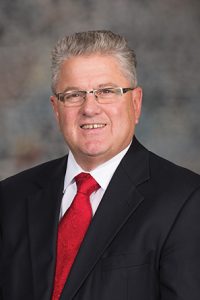Clean energy economic development changes advanced
A bill that would make changes to the Nebraska Property Assessed Clean Energy Act, commonly known as PACE, advanced from general file April 8.

Seward Sen. Mark Kolterman, sponsor of LB23, said PACE was enacted in 2016 and allows cities and counties to authorize PACE financing within their jurisdiction for energy efficiency, water conservation and renewable energy projects for commercial, agricultural and residential property.
Kolterman said PACE loans have been used across the country and allow repayment through special assessments attached to a property. In order to use PACE, he said, a municipality must pass an ordinance establishing a PACE district, which Omaha, Lincoln and Bellevue have done.
An Urban Affairs Committee amendment, adopted 37-0, replaced the bill. Omaha Sen. Justin Wayne, chairperson of the committee, said the amendment addressed two concerns with the bill as introduced.
“The bill originally would have authorized the use of PACE financing to retroactively finance energy efficiency improvements and renewable energy systems that were already in place,” Wayne said. “Second, the bill originally would have eliminated the requirement that the energy savings generated by a PACE project exceed the cost of the project, commonly known as savings to income ratio, or SIR.”
The committee amendment would eliminate the retroactive financing provision. It would retain the SIR provision, but would allow municipalities to wave the requirement on a case-by-case basis.
The amendment also would add new public purpose language to the PACE Act and would change the classification of co-generation and tri-generation systems under the act from a renewable energy resource to an energy efficiency improvement.
Following adoption of the committee amendment, senators voted 39-0 to advance LB23 to select file.

